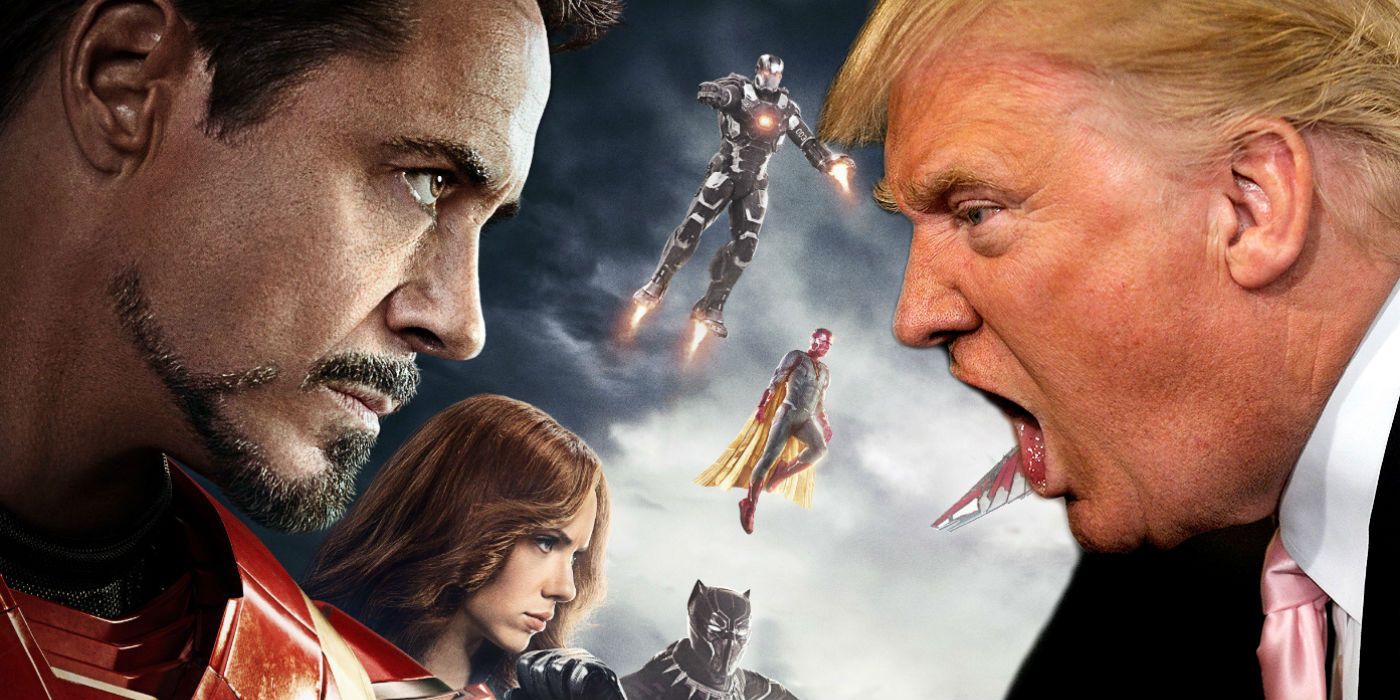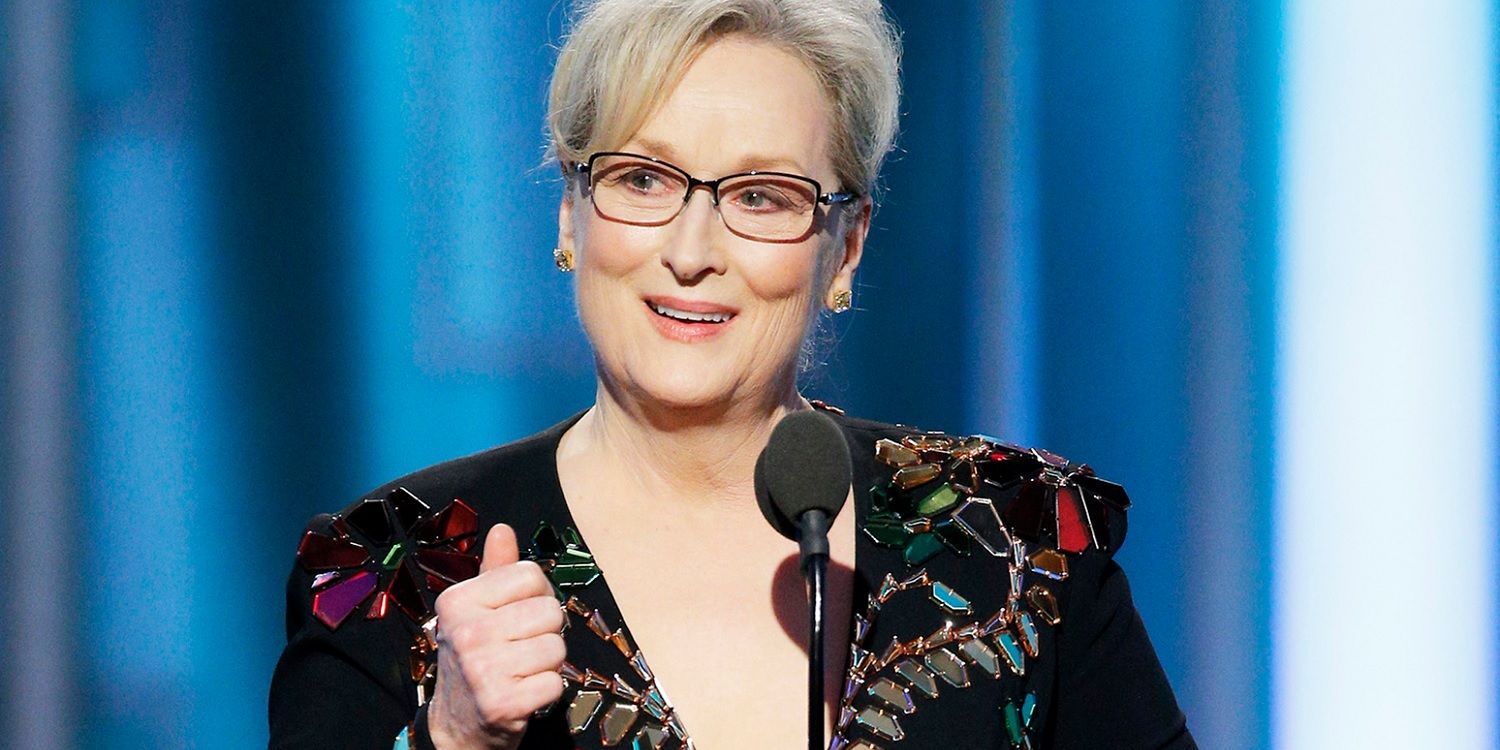As Donald Trump's executive order banning nationals from seven Muslim majority countries took effect last week, protests erupted across America, with thousands taking to various airports where individuals were being held to demand their release. While a judge has since issued a temporary stay of the order, the long-term effects of the demand remain to be seen, and the impact of the order had an immediately public face with the Iranian director Asghar Farhadi. The Oscar-winning filmmaker behind A Separation and The Past has been nominated again this year at the Academy Awards for his latest work, The Salesman, but Trump's executive order would prohibit him from entering the country to attend the ceremony.
The Academy has denounced the travel ban, calling it "extremely troubling," and various celebrities have spoken out against it, with some calling for a boycott of the entire ceremony. While there appears to have been the possibility of a travel exception being made for Farhadi, the director has since released a statement confirming that he will not attend the ceremony, saying that, "the possibility of this presence is being accompanied by ifs and buts which are in no way acceptable to me even if exceptions were to be made for my trip."
When Trump’s inauguration failed to attract big name talent to perform, his team denounced the supposed elitist liberal attitude of Hollywood and their inability to stand up for “real” America. Trump also used his Twitter account to direct anger at Meryl Streep after her Golden Globes speech, wherein she called out his treatment of a disabled reporter and the ways in which she believed American culture as a whole would be negatively affected by his policies. Trump’s angry response to the speech, which included calling Streep “overrated,” highlights one of many major issues with the new President, and the importance of the world of celebrity opposing him at every turn.
Ahead of being a politician or even a businessman, Trump is a celebrity. His branding relies almost exclusively on the public image he set up for himself as the judge of a reality TV show. The Apprentice revitalized his persona and bankability as a pantheon of business, which had previously taken numerous hits due to several bankruptcy cases. Even before his foray into television, Trump frequently used the models of celebrity to further his image: he was interviewed frequently by Howard Stern; he appeared in celebrity magazines, both high-market (Vogue) and populist (People); he gave interviews to Entertainment Tonight; he got into feuds with other celebrities such as Rosie O’Donnell and Bill Maher (whom he attempted to sue).
Infamously, he frequently acted as a self-appointed commentator on celebrity gossip. Everyone from Kim Kardashian ("She’s gotten a little bit large," he said while she was pregnant) to Kristen Stewart and Robert Pattinson ("Robert I'm getting a lot of heat for saying you should dump Kristen - but I'm right. If you saw the Miss Universe girls you would reconsider”) to Russell Brand (“a major loser”) has been on the receiving end of his attacks, and this only increased after he entered the ring as a Presidential candidate. Indeed, it continues to this day with not only Streep being attacked but also Arnold Schwarzenegger, who took over from Trump as host of Celebrity Apprentice, where Trump was giddy to boast about Schwarzenegger's failure to match his own ratings.
The trappings of celebrity remained Trump’s primary mode of campaigning during both the primaries and the election. His pithy slogans made for prime marketing and inspiring devotion – “Make America Great Again”; “Build the Wall”; “Drain the Swamp.” His line of hats became quickly iconic and unavoidable, while his Saturday Night Live and Late Night with Jimmy Fallon appearances positioned him as a celebrity more than a politician in their refusals to truly interrogate his policies, and his strategy focused on constant talk of winning, as if he was still on The Apprentice. One's image as a celebrity is that of a winner, and it's an image that is sold as being aspirational in the most extreme manner possible by placing it as a democratic decision: vote for Trump, and you too could be a winner.
Anne Helen Petersen of Buzzfeed argues that the key to understanding Trump is to view him as a celebrity. It is in this strategy that Hollywood’s consistent opposition of him is at its most potent, because Trump is clearly devastated that he doesn’t have celebrity on his side. He had big names like Jon Voight, but nowhere near the A-List cache Hillary Clinton rallied to her side during the election, with everyone from Meryl Streep to Lena Dunham to Joss Whedon (and, by extension, Marvel heavy-hitters like Robert Downey, Jr. and Scarlett Johansson) working on her behalf. Barack Obama’s inauguration performances included Aretha Franklin, James Taylor and Beyonce, while Trump could only manage Toby Keith, 3 Doors Down, and Jackie Evancho - the latter a runner-up on season 5 of America's Got Talent.
Even those bankable names who hinted at Trump support - including Clint Eastwood and Trump’s long-time friend, footballer Tom Brady - wouldn’t publicly endorse him in a way he could truly use. The biggest celebrity event of inauguration week came the next day with the Women’s March, which included big name participants such as Jessica Chastain, Miley Cyrus, Jake and Maggie Gyllenhaal, Natalie Portman and Madonna.
This year's Oscars ceremony, for those who choose to attend it should a boycott officially take place, will almost certainly include speeches condemning Trump and supporting Farhadi. The ceremony has a long history of being a platform for celebrities to amplify their progressive causes. Famously, Vanessa Redgrave spoke in favour of Palestinian rights during her Best Actress speech before she was promptly booed from the stage. Michael Moore's own speech, wherein he denounced the Iraq War in 2003, also saw him booed by the supposedly liberal audience. Olympia Dukakis ended her Best Supporting Actress speech with a call of support to her cousin Michael, who was running for President at the time. Sean Penn’s first Oscar speech started with a joke about there being no weapons of mass destruction in Iraq. It's a time-honored tradition to turn political at the Oscars, and the producer of this year's ceremony, Michael De Luca, has heartily welcomed more Streep-like speeches, saying "these forums are rare."
The size of the platform matters, as does the amplification provided. More people will probably watch the Oscars than the inauguration, and more people will see the tweet of Kumail Nanjani or Mark Ruffalo than that of their local congressman. As noted by Petersen in her Buzzfeed piece:
"To view Trump as a politician is to believe that the traditional political checks of journalism can erode his image with his base. To view him as a celebrity is to understand that the institutions most critical to his own, fragile idea of his image — Saturday Night Live, the tabloids, the cable news programs, Twitter, paparazzi photos of his hair — are his vulnerability points."
That is why Hollywood’s opposition to Trump is so powerful. It does not come before the hundreds of thousands of regular citizens consistently protesting him, nor should it, but it’s evident that the opinions of celebrities matter more to him, and their refusal to side with him and be his friends has a potent impact. Trump is now the most powerful person on the planet, but it's not enough for him. He wants to be the biggest celebrity too, and that’s why he will undoubtedly end up watching this year’s Oscars - so the winners had better make sure their speeches pack a punch.


